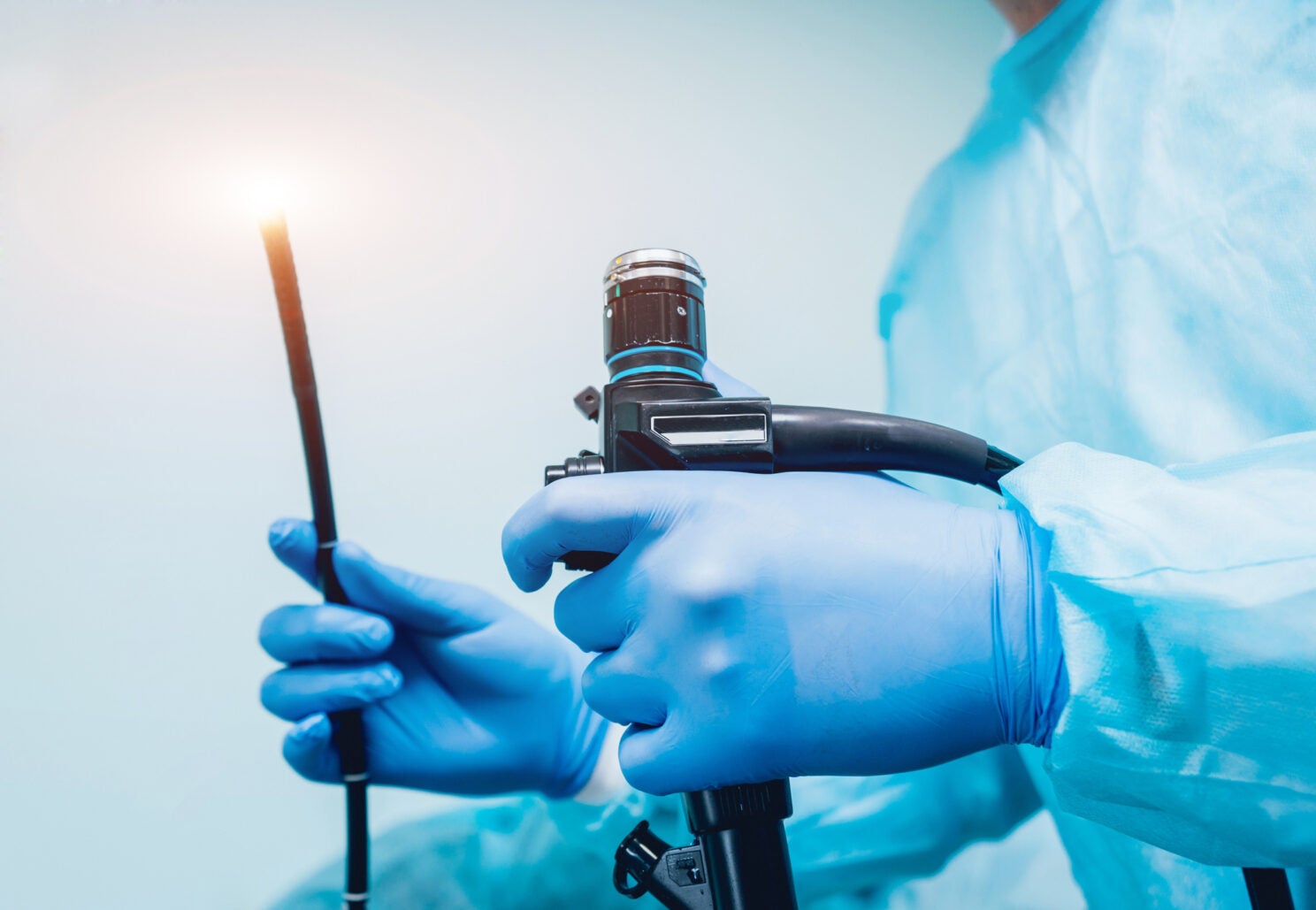Excited about new diet drug? This procedure seems better choice.
Study finds minimally invasive treatment more cost-effective over time, brings greater weight loss

Interest in the latest generation of weight-loss drugs shows no sign of flagging, but a new study shows that a minimally invasive endoscopic bariatric procedure is actually more cost-effective and helps shed more pounds.
Researchers say it has been overshadowed as a treatment option due to the popularity of the new medications and deserves more widespread consideration.
The work, published in April in the journal JAMA Network Open, compared the effectiveness and price of semaglutide, the effective compound in the popular weight-loss drug Wegovy and anti-diabetes medication Ozempic, versus endoscopic sleeve gastroplasty over five years.
“GLP-1s changed the landscape,” Muhammad Haseeb, the study’s lead author, said of the new anti-obesity medications. “It is effective, no question about it. But at more than quadruple the price of previous drugs, it comes at a very high cost.”
The researchers found that the five-year cost of the medication was $53,268 versus $19,685 for the minimally invasive procedure, which was pioneered in 2012 by Christopher Thompson, a professor of medicine at Harvard Medical School and physician at Brigham and Women’s Hospital.
The study also found that the procedure resulted in greater weight loss, with those getting the endoscopic sleeve gastroplasty losing, on average, 18 percent of body weight and having a BMI after five years of 31.7, compared to a starting BMI of 37. Patients taking semaglutide lost an average of 15 percent to 16 percent of body weight and had an average ending BMI of 33.0.
The procedure, endoscopic sleeve gastroplasty (ESG), is considered nonsurgical — meaning physicians make no incisions. It’s an option that reduces the volume of the stomach by inserting a flexible tube called an endoscope down the throat, and then suturing the stomach from the inside.
The treatment, done on an outpatient basis, takes just about an hour. It mirrors the effect of more invasive bariatric surgeries to reduce stomach volume that have been employed over the past few decades, but presents far fewer of the risks common to more invasive procedures.
“I wouldn’t characterize [the new medications’] usage as overextended, as many payers have already implemented restrictions on access. Rather, their current pricing structure is disproportionate to their value,” said Jagpreet Chhatwal, associate professor of radiology at Harvard Medical School and Massachusetts General Hospital and an author of the study. “There are other, more effective weight-loss options like ESG, which are minimally invasive and should be considered along with medications. These have been overshadowed by the excitement about the recent GLP-1 weight-loss medications.”
In addition, researchers point out that gastroplasty is reversible but can be a permanent fix. That contrasts with medications that have to be taken even after initial weight loss has plateaued in order to maintain lower weight. Because of that, Haseeb said, the savings of gastroplasty over the anti-obesity medications continue to mount in the months and years afterward.
“If you think about it, this is actually astonishing,” said Haseeb, who began the work while studying for a master’s degree in clinical investigation at HMS in 2022 and is currently doing a fellowship at University of Pittsburgh Medical Center. “Just imagine if the model was running for the next five years and costs would continue to occur on the medication side of things. The purpose of the study is to give the whole picture, over the longer term.”
The research comes amid enormous public enthusiasm for the new generation of weight-reduction medications, which recently expanded with the FDA’s November approval of tirzepitide, a drug that works in a similar fashion to semaglutide. The landscape for anti-obesity medications is expected to continue to shift as pharmaceutical companies race to develop new and more effective formulations.
Among experts, however, enthusiasm for the new medications is tempered by concerns about their cost, about $13,618 per year. A 2020 national study estimated that about 42 percent of American adults could be classified as obese, resulting $173 billion per year in medical costs.
Public health experts are concerned that, should most — or even many — turn to those weight-loss medications, the nation’s healthcare bill would skyrocket, increasing insurance and out-of-pocket costs and potentially leaving funding scarce for other medical and public health priorities.
Haseeb cited a 2023 study that estimated if only about 10 percent of Medicare patients with obesity who are eligible for medication treatment get semaglutide, the total spending could be $26.8 billion. But if every Medicare patient struggling with obesity received the drug, the cost would be greater than the current Medicare budget.
To conduct the study, Haseeb created a computer model that brought the results of separate clinical trials of semaglutide injection and endoscopic sleeve gastroplasty together in a single model.
The study showed that after the first year, semaglutide was the most cost-effective treatment, but each year after that, gastroplasty made gains as drug costs continued. An analysis showed semaglutide prices would have to drop from $13,618 to $3,591 per year to be as cost-effective after five years.
“There’s a pressing need for a substantial reduction in the cost of semaglutide, ideally by threefold, bringing it below $3,590 after factoring in rebates and discounts,” Chhatwal said.
The study was supported by the National Institutes of Health. Several of the researchers reported professional affiliations with companies engaged in endoscopic product development, but outside the submitted work.




